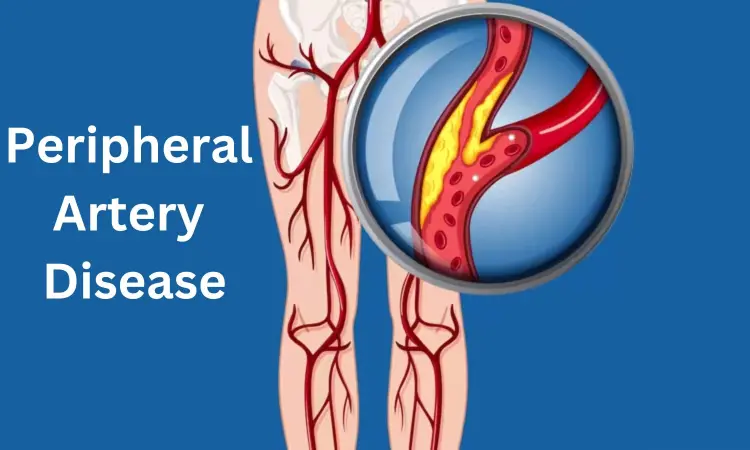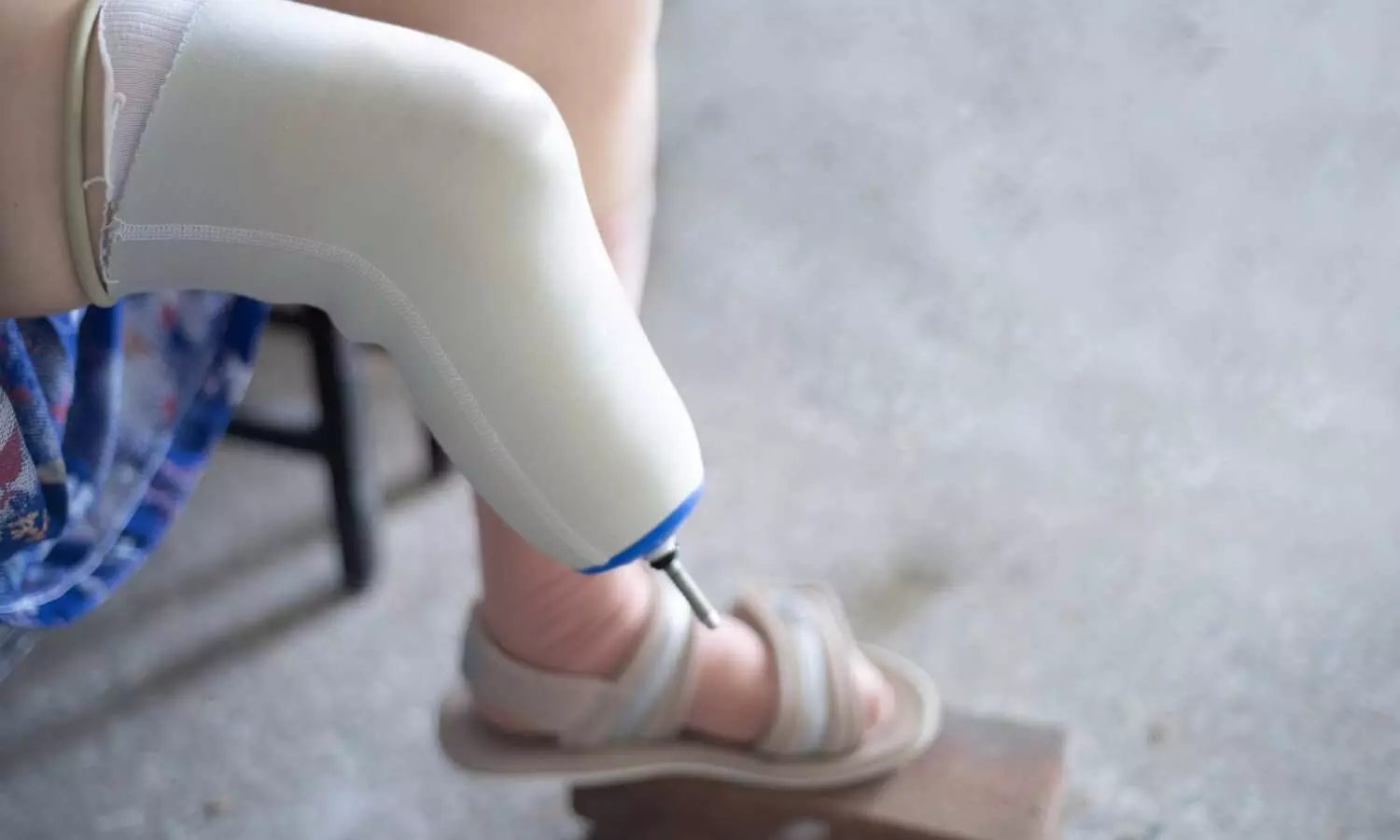- Home
- Medical news & Guidelines
- Anesthesiology
- Cardiology and CTVS
- Critical Care
- Dentistry
- Dermatology
- Diabetes and Endocrinology
- ENT
- Gastroenterology
- Medicine
- Nephrology
- Neurology
- Obstretics-Gynaecology
- Oncology
- Ophthalmology
- Orthopaedics
- Pediatrics-Neonatology
- Psychiatry
- Pulmonology
- Radiology
- Surgery
- Urology
- Laboratory Medicine
- Diet
- Nursing
- Paramedical
- Physiotherapy
- Health news
- Fact Check
- Bone Health Fact Check
- Brain Health Fact Check
- Cancer Related Fact Check
- Child Care Fact Check
- Dental and oral health fact check
- Diabetes and metabolic health fact check
- Diet and Nutrition Fact Check
- Eye and ENT Care Fact Check
- Fitness fact check
- Gut health fact check
- Heart health fact check
- Kidney health fact check
- Medical education fact check
- Men's health fact check
- Respiratory fact check
- Skin and hair care fact check
- Vaccine and Immunization fact check
- Women's health fact check
- AYUSH
- State News
- Andaman and Nicobar Islands
- Andhra Pradesh
- Arunachal Pradesh
- Assam
- Bihar
- Chandigarh
- Chattisgarh
- Dadra and Nagar Haveli
- Daman and Diu
- Delhi
- Goa
- Gujarat
- Haryana
- Himachal Pradesh
- Jammu & Kashmir
- Jharkhand
- Karnataka
- Kerala
- Ladakh
- Lakshadweep
- Madhya Pradesh
- Maharashtra
- Manipur
- Meghalaya
- Mizoram
- Nagaland
- Odisha
- Puducherry
- Punjab
- Rajasthan
- Sikkim
- Tamil Nadu
- Telangana
- Tripura
- Uttar Pradesh
- Uttrakhand
- West Bengal
- Medical Education
- Industry
Counseling Interventions for Walking reduce risk of CV Events in Peripheral Artery Disease, finds study

New research revealed that counseling interventions to increase walking and physical activity have reduced the risk of major adverse cardiovascular events (MACE) and cardiovascular deaths in individuals with peripheral artery disease. The trial which is a post hoc analysis published the results in the journal JAMA Surgery.
Peripheral artery disease (PAD) is a condition where blood flow to the limbs is reduced due to narrowing of the arteries. This results in walking impairment and increased risk of cardiovascular events. It is a global disease-causing increased risk of heart diseases and stroke. Structured exercise programs significantly improve walking ability and quality of life (QOL) in individuals with peripheral artery disease (PAD). However, access to these programs is often limited, and many patients struggle to maintain the walking improvements over time. Research has shown that short-term benefits are achievable through structured exercise and long-term walking improvements often diminish once formal programs end. Effective long-term strategies could not only enhance mobility but also improve overall cardiovascular health and reduce the risk of adverse events in this population. Hence, Brief Behavioral Intervention by Allied Health Professionals to Promote Physical Activity Interventions for PAD is a randomized clinical trial that was conducted in Australia to offer new hope for patients suffering from PAD.
The trial is a parallel, multicenter randomized clinical trial that examined a counseling intervention. It was conducted between January 2015 and August 2023 involving 200 participants from vascular departments in Brisbane, Sydney, and Townsville. Participants who experienced walking difficulties due to PAD were randomly assigned to either a counseling intervention group or a control group. The counseling group were given four brief sessions designed to help them overcome challenges related to increasing physical activity, specifically walking. The primary outcome of the trial was to measure the difference in MACE risk between the two groups.
Findings:
- The median age of the participants was 70 years, with 28% being female.
- Over the average follow-up period of 3.5 years, a total of 31 individuals experienced a MACE, including 19 heart attacks, 4 strokes, and 8 cardiovascular-related deaths.
- The study showed promising results.
- Participants who received counseling were significantly less likely to experience a MACE compared to those in the control group (9.8% vs. 21.4%).
- There was a 57% reduction in the risk of cardiovascular events in Intervention group (hazard ratio [HR], 0.43; 95% CI, 0.20-0.91; P = .03).
- Further analysis suggested that improvements in disease-specific quality of life (QOL) were a key factor in reducing MACE risk.
- The likelihood of MACE was reduced with higher scores on the Intermittent Claudication Questionnaire (ICQ) and the PAD Quality of Life (PADQOL) survey at four and twelve months.
- However, no statistically significant results were seen between counseling and cardiovascular events when the analysis was adjusted for the QOL improvements.
The trial results highlight the potential benefits of counseling interventions aimed at increasing physical activity in PAD patients, possibly due to their positive impact on quality of life. While more research is needed, this trial suggests a promising strategy for reducing cardiovascular risk in a vulnerable population.
Further reading:
Golledge J, Venn A, Yip L, et al. Counseling Intervention and Cardiovascular Events in People With Peripheral Artery Disease: A Post Hoc Analysis of the BIP Randomized Clinical Trial. JAMA Surg. Published online August 21, 2024. doi:10.1001/jamasurg.2024.3083
BDS, MDS
Dr.Niharika Harsha B (BDS,MDS) completed her BDS from Govt Dental College, Hyderabad and MDS from Dr.NTR University of health sciences(Now Kaloji Rao University). She has 4 years of private dental practice and worked for 2 years as Consultant Oral Radiologist at a Dental Imaging Centre in Hyderabad. She worked as Research Assistant and scientific writer in the development of Oral Anti cancer screening device with her seniors. She has a deep intriguing wish in writing highly engaging, captivating and informative medical content for a wider audience. She can be contacted at editorial@medicaldialogues.in.
Dr Kamal Kant Kohli-MBBS, DTCD- a chest specialist with more than 30 years of practice and a flair for writing clinical articles, Dr Kamal Kant Kohli joined Medical Dialogues as a Chief Editor of Medical News. Besides writing articles, as an editor, he proofreads and verifies all the medical content published on Medical Dialogues including those coming from journals, studies,medical conferences,guidelines etc. Email: drkohli@medicaldialogues.in. Contact no. 011-43720751




